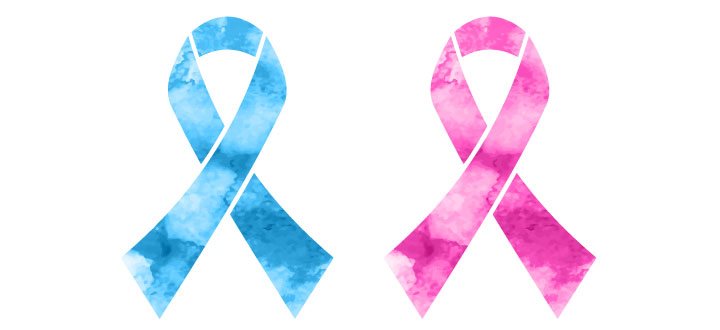Testosterone and Cancer Treatment

For many people, the fear of cancer keeps them from seeking treatment for menopause or andropause, but that fear may not only be unfounded, but research shows how testosterone therapy can not only relieve their symptoms but may also prevent and even treat certain cancers.
Quality of life is an important factor in any type of treatment, and for people dealing with symptoms of hormonal deficiency, the fact that testosterone therapy may not contribute to a cancer risk is important. Even more interesting to learn is that doctors are combining testosterone and cancer treatment to bring about better results in many ways.
At one time, it was believed that testosterone deficiency syndrome treatment and cancer risk went together, especially for men worried about prostate cancer. One of the most important factors is the timing of testosterone therapy. If given at the wrong time, testosterone could worsen cancer rather than help it.
No one – man or woman – should attempt to treat cancer or a hormone deficiency on his or her own. Testosterone replacement therapy must be prescribed and supervised by a doctor.
Testosterone and Prostate Cancer
Prostate cancer can be a scary diagnosis for a man, but it does not have to be with the right treatment.
Although it was once thought that androgens such as testosterone fueled the growth of cancer cells, Sam Denmeade MD, the professor of oncology at Johns Hopkins University School of Medicine in Baltimore, Maryland says otherwise – that there is no evidence that testosterone promotes cancer.
This is good news to men who previously would have had to undergo androgen deprivation which led to depression and other symptoms of Low T for the treatment of prostate cancer.
New research shows that high doses of testosterone could have the ability to inhibit the growth and subsequently kill cancer cells. Lab studies have shown that testosterone interferes with DNA licensing – the cell division process in cancer cells. Additionally, testosterone and prostate cancer treatment may cause the prostate cancer cells to make breaks in their own DNA.
The research was done on men with castration resistant prostate cancer that had metastasized to other parts of the body. Treatment exposed the cancer cells to very high and then very low blood levels of testosterone.
Another way we look at testosterone and cancer treatment is as a preventative tool. Prostate health can be affected by testosterone levels. A condition called estrogen dominance occurs when the enzyme aromatase converts too much testosterone into estradiol (estrogen). Higher levels of estrogen in the bloodstream can lead to prostate growth.
The other issue men face as they age is a decline in progesterone levels (the precursor hormone to testosterone) that also leads to estrogen dominance, as well as increased DHT levels. Dihydrotestosterone is also synthesized from testosterone, but this time by the enzyme 5-alpha reductase. High amounts of DHT can fuel the growth of prostate cells. Treatment with testosterone lowers PSA levels and can reduce the risk of prostate cancer.
Testosterone and Breast Cancer
Following research that estrogen and progestin use increased breast cancer risk, many women shied away from hormone replacement for menopause.
The problem with that line of thinking is that not only were they then subjecting themselves to the many symptoms and health risks associated with menopause, but they also denied themselves crucial hormones that their bodies required. Hormones that protect against the following conditions:
- Osteoporosis
- Dementia
- Heart disease
- Type 2 diabetes
In fact, women have a higher incidence of fibrocystic breast disease around the time that they are losing 50 percent of their body’s testosterone production.
The maintenance of normal testosterone levels could help decrease the risk of breast cancer, but, what about those who are already diagnosed with cancer – could testosterone therapy still help them?
Testosterone has proven effective for women with certain types of hormone receptor-positive breast cancers.
In 2013, a study on the use of testosterone or testosterone in combination with anastrozole (estrogen blocker) demonstrated a reduced incidence of breast cancer cases lower than the national average. At the interim 5-year analysis of the 10-year Dayton study, research showed evidence that maintenance of a favorable testosterone to estrogen ratio could aid in the prevention of breast cancer.
One form of testosterone and breast cancer treatment is the administration of testosterone cypionate injections intramuscularly once every two to four weeks for women in the following categories:
- Premenopausal
- Have undergone oophorectomy
- Have hormone responsive tumors
- Have advancing inoperable metastatic mammary cancer and are one to five years postmenopausal
To get more information about supplemental testosterone and cancer treatment, please contact the hormone specialists at Kingsberg Medical for a confidential consultation at no charge.
Brian Leeber



















